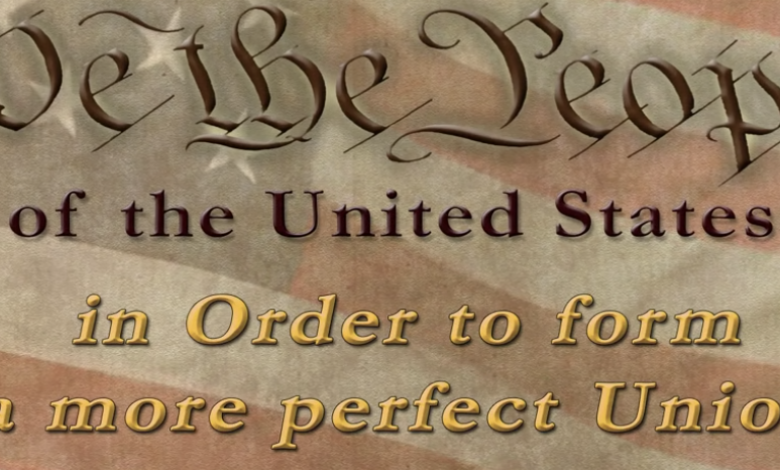
Will this presidential election be the most important in American history?
Commentary by Dr. Jonathan Den Hartog originally published by RealClearHistory and RealClearWire
Public debates have recently focused on school history standards – what the Advanced Placement program should teach in its African-American Studies course and what the state of Florida should say about the effects of slavery. These are important questions. But I’m concerned about a longer-term problem: the danger of making American history and civics dull.
There’s a long history of depicting both history teachers and the topics they cover as boring. In 1986, Ferris Bueller’s teacher, played by Ben Stein, put people to sleep by lecturing in a monotone voice about the Smoot-Hawley Tariff. In J.K. Rowling’s Harry Potter series, Harry and his friends have to listen to a History of Magic professor, Cuthbert Binns, drone on about uninteresting, meaningless events from the past. Professor Binns was literally a ghost – the lack of connection of his subject to the real world could hardly have been clearer. Although extreme examples, too often history presentations live down to such stereotypes.
In addition, many students get inoculated to the excitement of American history by being taught solely with a diet of textbooks. These massive tomes provide lots of accurate facts and information, derived from numerous scholarly investigations. In the process, however, they mislead readers about the past. They present the past as dull, reduced to names, dates, and facts. Rather than seeing history as the process of exploration and discovery, the information is presented as pre-digested and the outcomes as foreordained.
The actual past was anything but. Historians use the term “contingency” to capture the openness of the past. Studying any moment in depth helps us realize that events could have turned out very differently. Individuals and groups in American history made meaningful choices to act in response to the conditions they faced. Both unexpected chances and intentional choices helped forge events that we now look back upon and evaluate – sometimes with deep regard and sometimes with reproach.
If the real American past was dramatic, our presentations to students at all levels should mirror that reality.
Innovative teachers can demonstrate this drama to their students in at least three ways.
First, teachers should recount the drama of the past itself. Throughout American history, we can find significant turning points. With his men retreating from New York and New Jersey, how would George Washington’s ragged army respond to his decision to cross the Delaware? How would Americans respond to Abraham Lincoln’s release of the Emancipation Proclamation? How would soldiers, sailors, and airmen steel themselves for the D-Day assault on Normandy? But also – how would women mobilize to demand their right to vote? Or how would the youth of Birmingham, Alabama respond to calls to march in protest of segregation? Posing each event as a question opens the door for an exciting narrative of discovery – not a bland assertion of facts.
Second, teachers should provide their students with the drama of discovery. History work is often detective work, so bringing students into contact with new pieces of “evidence” opens up great opportunities to ask new questions. Learning about a topic through the documents, pictures, songs, material realities, and popular culture of an era allows students to encounter the human realities of the past, to connect how others have lived with larger themes and ideas.
Third, teachers should channel the drama of debate. From the debates over ratification of the Constitution to arguments over the wars in Iraq and Afghanistan, Americans have been a fractious bunch. Showing those debates to students can reveal that Americans didn’t drift through life stuck in a boring consensus. The elections of 1800 and 1828 were as bare-knuckled as more recent contests. Even the losers of debates often made valid points – indeed, sometimes they were more insightful and prescient than the winners. Demonstrating the point/counterpoint of American life can infuse the questions with real urgency – especially as students are invited into those very questions.
History and government teachers have a hard job, beset with demands from many sides. In the midst of those pressures, they can serve their students well by passing on an appreciation for the drama of American history.
Beyond that, there’s a lesson for all of us as citizens. We have a responsibility to think clearly and respond well in our moment. We need to develop the virtues necessary to participate actively in self-government. If we do that well, we can contribute another positive chapter to the American story – but there’s no guarantee. So we find ourselves still living in the drama of American history.
__________
Dr. Jonathan Den Hartog is Professor of History and Chair of the History Department at Samford University in Birmingham, Alabama and a Jack Miller Center faculty partner. He is the author of “Patriotism and Piety: Federalist Politics and Religious Struggle in the New American Nation.”
This article was originally published by RealClearHistory and made available via RealClearWire.



